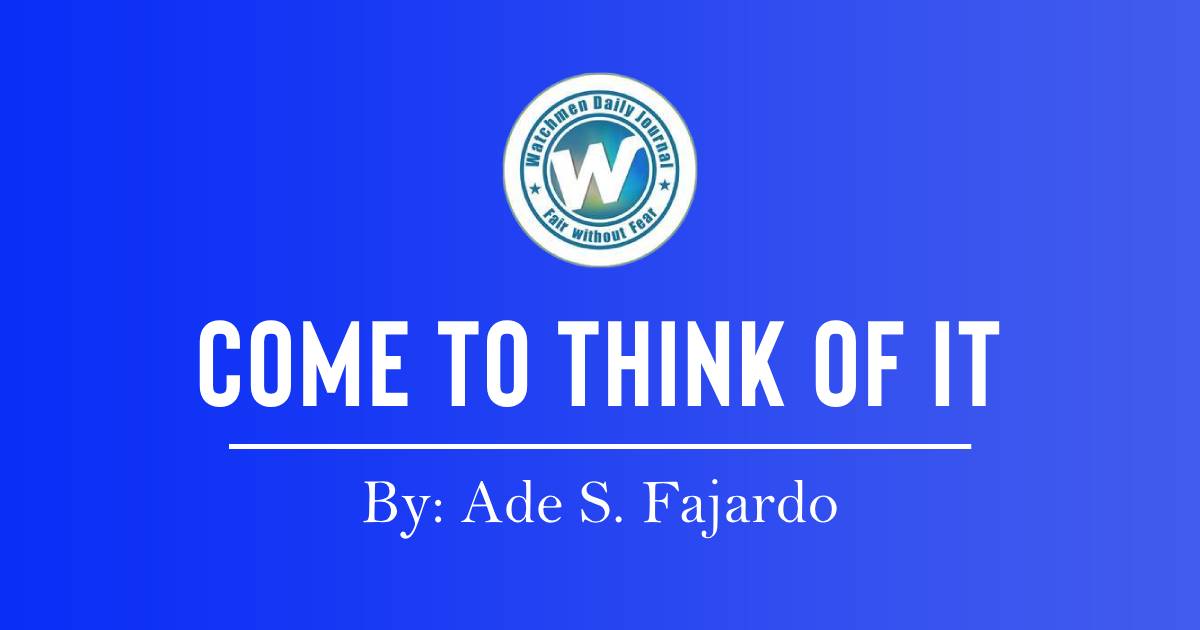
By Ade S. Fajardo
Politicians have started airing campaign jingles whose melodies are familiar and easy to follow.
The familiar tunes are copied from the popular work of artists who worked on them using their intellect and emotions, and obviously without politicians in mind.
There would be no problem if the campaign jingle is composed and aired with the consent of the artist concerned. On the other hand, there is a legal quandary when the political tune is aired without the knowledge and permission of the author or composer.
***
For the first time ever, the Commission on Elections, in partnership with the Intellectual Property Office of the Philippines (IPOPHL), has greenlighted a campaign to protect the intellectual property rights of artists who may be affected by the unsanctioned use of their work product in the period leading to the May 2025 elections.
While an artist’s work is not tangible like a car or a piece of land, it is nonetheless property that may be owned and subjected to restrictions by its owner.
A memorandum of understanding has been signed by Comelec Chairman George Erwin Garcia and IPOPHL Director General Rowel Barba that seeks to call out candidates who disrespect artists by using their tunes without warning.
***
Candidates may not steal a melody formulated by the artist concerned. Unlawful taking of jewelry is theft. Stealing a car is carnapping.
Comelec’s Garcia said that candidates who steal intellectual property may not be trusted and should not be voted into office. He hastened to add, though, that intellectual property theft is not yet an election offense that can be a ground to cause the cancellation of a candidate’s certificate of candidacy.
What is clear, however, is that various types of intellectual property theft are penalized as special crimes under the Intellectual Property Code of the Philippines.
***
This development augurs well for artists whose works are being stolen without due compensation. This is a correct first step towards their empowerment.
Stolen melodies may also result in the misimpression that the artist or performer of the original track could be endorsing selected candidates in political contests. This can harm the artist’s well cultivated reputation.
For example, an artist who espouses the rule of law has the right to object to the use of his product by a populist candidate who advocates legal shortcuts to achieve his political goals.
***
Raymund Marasigan of the Eraserheads has echoed this sentiment. He tweeted: “Whenever you hear an unauthorized bastardized version of a popular song as an election jingle, please do not vote for that candidate. ‘Di pa na-elect, nagnakaw na.”
This MOU between Comelec and IPOPHL may finally generate actual case law concerning the unauthorized use of melodies in political campaigns. There is a dearth so far of judicial precedence, validating the pervasive ignorance among politicians who are supposed to be more learned in the law.
Much abused songs like “Otso-Otso” (2004) can finally generate income for the poor artist who was somehow instrumental in electing hundreds of politicians into office./WDJ

